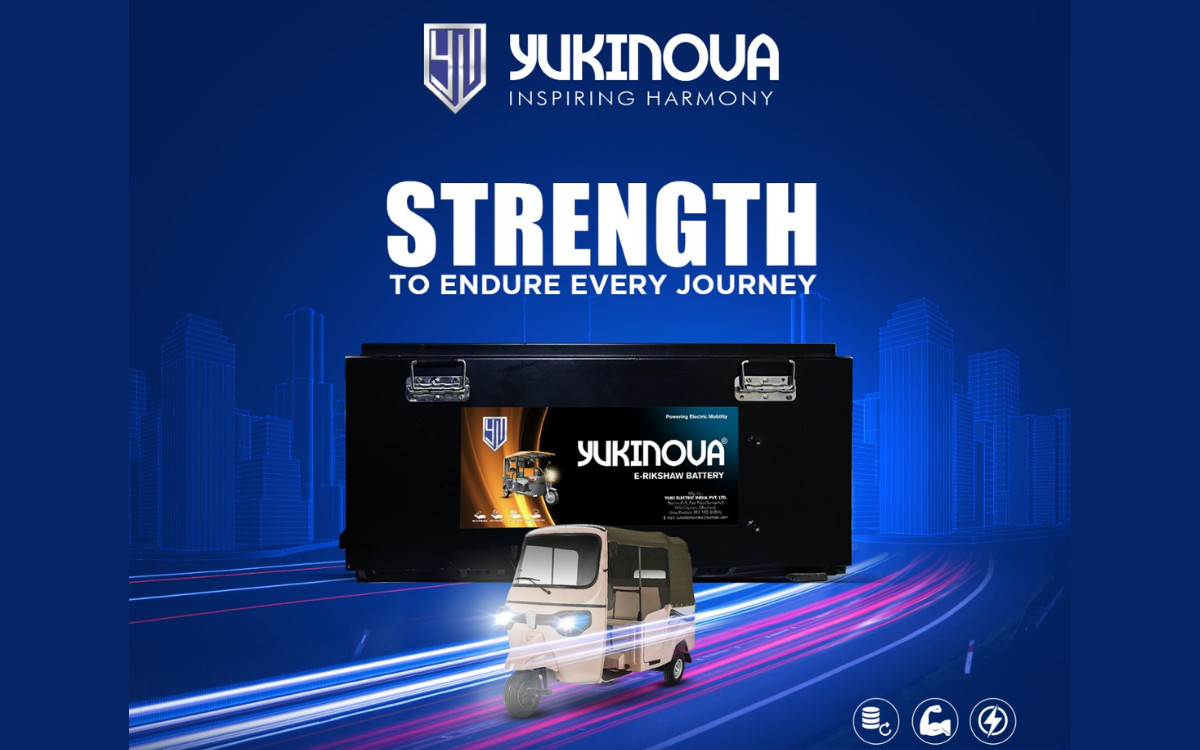The electric vehicle revolution has taken the world by storm and India is no exception. The Indian lithium ion battery market is growing rapidly, with demand being driven by the increasing adoption of electric vehicles and renewable energy. In 2022, the market was valued at $2.5 billion and is expected to reach $5.4 billion by 2028.
In this transformation, Yukinova, as a leading lithium-ion battery manufacturer in India is playing from the forefront. In this blog, we will delve into the scenario of lithium-ion battery manufacturing in India and explore how Yukinova is playing a pivotal role in shaping the future of sustainable transportation and also what led to this boom in the manufacturing sector of the Lithium ion industry in India.
So, these are some of the driving factors we can foresee:
1.The increasing adoption of electric vehicles:
The Indian government has set a target of 30% electric vehicle sales by 2030. This will require a significant increase in the production of lithium ion batteries, as electric vehicles use lithium ion batteries for their power source.
2.The growing demand for renewable energy storage:
The Indian government’s promotion of renewable energy sources has spurred the demand for lithium-ion batteries. These batteries are essential for storing and deploying surplus power from intermittent sources like solar and wind, ensuring a stable and sustainable energy supply. As a result, the growing emphasis on renewables has accelerated the adoption of lithium-ion batteries in India.
3.The rising popularity of portable devices:
The popularity of portable devices such as smartphones and laptops is also driving demand for lithium ion batteries. These devices use lithium ion batteries to power their functions.
4.The government’s support for the development of the battery industry:
The Indian government is providing support for the development of the battery industry, such as by providing tax breaks and subsidies. This is helping to create a more favourable environment for growth in the market.
While all these factors combined are responsible for the lithium ion battery industry, these are also some challenges being faced by the indian lithium ion battery markets, let’s talk about that:
1.The high cost of raw materials:
The cost of raw materials such as lithium and cobalt is a major challenge for the Indian lithium ion battery market.
2.The lack of skilled labour:
There is a shortage of skilled labour in the Indian battery industry, which is another challenge.
3.The lack of government support for research and development:
Government could do more to support research and development in the battery industry, which would help to improve the quality and performance of lithium ion batteries.
Yukinova is a leading Two Wheeler Battery Manufacturer in India, playing a pivotal role in shaping the country’s lithium-ion battery industry. The growth is driven by increasing electric vehicle adoption, demand for renewable energy storage, and popularity of portable devices. Government support has been significant, but challenges like high raw material costs and skilled labour shortages remain. Overall, India’s lithium-ion battery market’s future is looking good with an exponential growth, valued at $2.5 billion in 2022 and expected to reach $5.4 billion by 2028.
